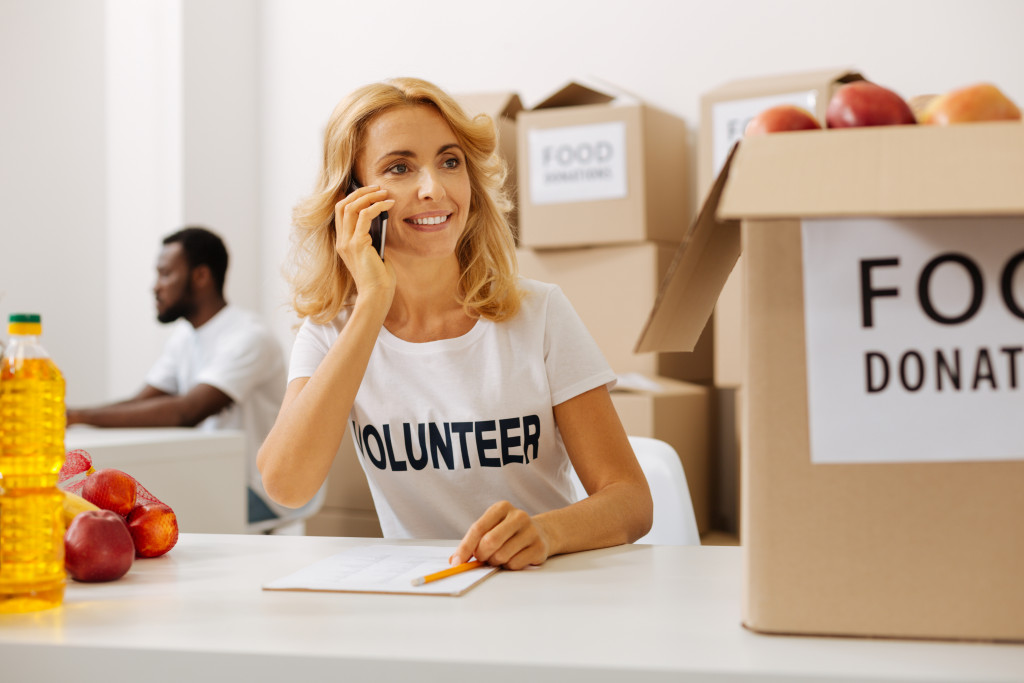In an emergency, everyone’s first instinct is to run away from the catastrophe and head towards safety. This is a good instinct as it saves lives and minimizes damage or injuries sustained. However, as a responsible citizen and as a volunteer, it’s important to think of ways to help those affected by the calamity.
Leaving people behind means that there will be no one who can help others during this critical stage. No community would want that, so volunteers are needed to help others seek refuge or provide first aid during natural calamities.
So what should you do when the people around you start running away? The first thing to remember is not to panic and take control of yourself. Natural disasters can cause deaths if there are no rescuers during this crucial stage. Here are other ways to help your community during a natural calamity.
First aid
A volunteer is a rescuer who helps provide first aid until the arrival of emergency medical responders or professional medical personnel. You don’t need to be a doctor to know basic first aid. Your knowledge of CPR and the use of simple tools will do, assuming that you know what to do with them.
It could also be wise to work with the community leaders, other volunteers, and rescue teams to save more lives. If you’re the only one providing first-aid, there’s a big chance that you will be exhausted before long. And you could use your time to be more productive if you have working partners. One way of organizing your work is by taking shifts with other rescuers.
Transportation
Knowing how to drive also comes in handy during an emergency like this. You can use your car or borrow some from friends and family members who are unaffected by the catastrophe. Helping transport victims to hospitals will help save lives, even if it’s just you driving alone.
For this, you might want to call on people with cars to join the community’s list of volunteers. The more people you have, the faster your team can respond and help victims get to places where they can be treated for their injuries.
Security and rescue operations
Your desire to help save lives will come in handy when it comes to rescue missions. Your knowledge of heavy machinery can also be used here. If you’re a member of the fire department, police force, or heavy equipment operators’ association, this is your time to shine.
Just make sure that you know what you’re doing at all times to avoid causing more harm than good. Showing up unannounced only worsens the situation if you don’t know what you’re doing, so be sure to ask for instructions first before taking action.
Relief goods and services

During this time, normal transactions and daily operations are hindered or suspended. This means that basic supplies such as water and foodstuff will be in short supply. Helping provide essential goods is also a way to help your community get back on its feet. You can reach out to heavy haul trucking companies to deliver bulk supplies like water, food, and other necessities into the affected areas.
Counseling
Natural calamities can leave deep emotional scars on people who have experienced or witnessed something heart-wrenching during this time. Help these individuals cope by acting as a medium between them and medical professionals who can provide counseling for those affected.
Even if you have no training in counseling, your compassion and willingness to help can encourage victims to recover faster. So don’t be afraid to step up when the time comes to provide psychological relief for people who are deeply traumatized by the calamity.
Clean-up operations
Nothing will help an area get back to normal faster than clean, debris-free roads and public areas. Cleaning up the place is a practical way of helping your community, and it provides another group of people with something to do as well. Depending on what’s needed, you can provide heavy equipment like excavators or heavy dump trucks.
Hopefully, as a volunteer, this guide will help you know what to do when the most common natural calamities hit your city or town. Being prepared is always better than not knowing what to do at all and having to figure out everything as the situation unfolds around you.
This way, you can help your community in times of need and make a difference, even it’s just you. How you affect other people’s lives is what matters most, so do your best and never give up, especially if you can save a life or two along the way.
